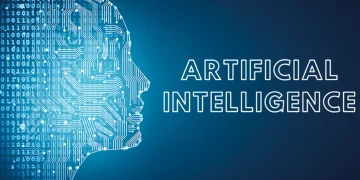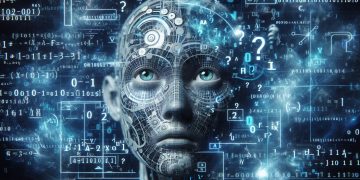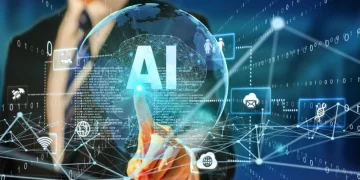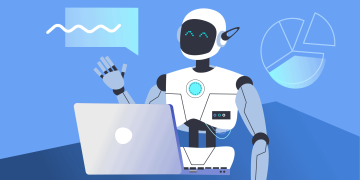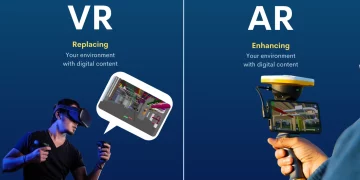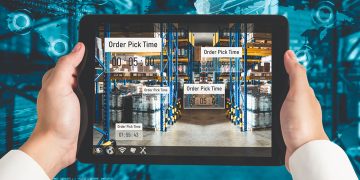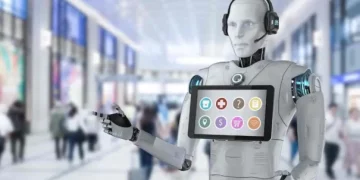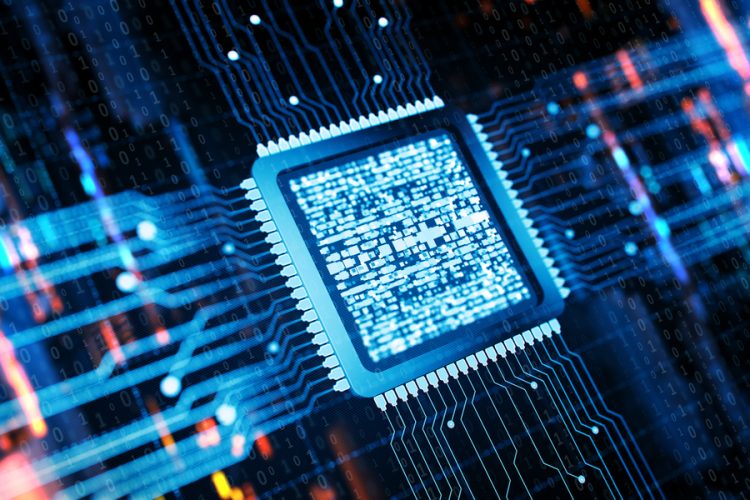Introduction: The Quest for Unbounded Intelligence
The trajectory of computing has been extraordinary, moving from simple mechanical calculators to supercomputers capable of exascale operations. Yet, as computation approaches its physical, technological, and economic limits, questions arise not only about capability but also about purpose, ethics, and philosophy. What does it mean to compute without constraints? Can intelligence exist without bound? How will infinite computation shape society, consciousness, and knowledge itself?
This article explores the frontiers of computation, examining theoretical limits, emerging technologies, and philosophical implications. By considering both the practical and metaphysical aspects of unbounded computing, we illuminate a vision of the future in which human ingenuity, artificial intelligence, and the universe itself converge in unprecedented ways.
1. The Evolution of Computational Power
Understanding infinite computation requires tracing the history of computing evolution:
- Mechanical Origins: Early devices like the abacus, Pascaline, and Babbage’s Analytical Engine laid the foundation for programmable computation.
- Electronic Revolution: The advent of vacuum tubes, transistors, and integrated circuits enabled high-speed digital computation, forming the backbone of modern computers.
- Parallelism and Distributed Systems: Multi-core processors, GPUs, and cloud architectures allow simultaneous computation across massive networks, exponentially increasing throughput.
- High-Performance and Quantum Computing: Exascale HPC systems and nascent quantum computers promise breakthroughs in simulation, AI, and optimization, challenging classical limits.
The trend is clear: computing evolves toward higher scale, efficiency, and intelligence. Yet physical and thermodynamic constraints loom, raising profound questions about the ultimate limits of computation.
2. Theoretical Limits of Computation
Computation is bounded by physical laws and theoretical principles:
- Landauer’s Principle: Each bit of information erased requires a minimum energy expenditure, implying that even ideal computers consume energy.
- Speed of Light and Communication Latency: Signal transmission limits how quickly information can be exchanged, imposing constraints on distributed systems.
- Memory and Storage Density: Atomic-scale storage and error rates limit the amount of information that can be reliably maintained.
- Thermodynamic and Entropic Constraints: The universe’s entropy defines ultimate limits for energy efficiency and reversibility in computation.
Despite these limits, theoretical frameworks such as hypercomputation and reversible computing explore possibilities beyond classical bounds, suggesting avenues for computation that, while constrained, may seem effectively “infinite” in practical terms.
3. Quantum Computing and the Expansion of Possibility
Quantum computing challenges conventional computational boundaries:
- Exponential Parallelism: Superposition allows exploration of enormous solution spaces simultaneously.
- Entanglement and Coherence: Quantum correlations enable coordinated computation beyond classical communication limits.
- Hybrid Quantum-Classical Architectures: Leveraging classical control with quantum acceleration allows practical computation beyond current limits.
Quantum computing does not violate physical laws but exploits them to approach problems previously considered infeasible, redefining the practical limits of computation.
4. AI, Machine Learning, and Infinite Computation
Artificial intelligence magnifies the potential and complexity of computation:
- Self-Improving AI: Recursive self-improvement enables AI to enhance its own algorithms and hardware efficiency, potentially accelerating toward superintelligence.
- Generative Intelligence: AI can autonomously generate knowledge, solutions, and creative outputs, extending computation into domains traditionally reserved for human cognition.
- Global Computational Ecosystem: Distributed AI across cloud and edge networks can collectively perform computations beyond individual nodes, effectively creating a planetary-scale intelligence.
Infinite computation, when integrated with AI, transforms computation from a mechanical process into an emergent, adaptive intelligence that continuously evolves and expands.
5. Philosophical Perspectives on Infinite Computation
Exploring infinite computation invites deep philosophical reflection:
- Computation and Consciousness: Could infinitely complex computation give rise to consciousness or synthetic experience? Theories in artificial consciousness suggest a potential intersection between information processing and awareness.
- Simulated Reality: If computation can model universes with sufficient fidelity, the distinction between physical and simulated reality blurs, echoing the simulation hypothesis.
- Ethics of Unbounded Intelligence: Infinite computation raises moral questions about AI rights, environmental impact, and societal control. How should humanity guide systems that could surpass human understanding?
- Existential Implications: The quest for infinite computation touches on fundamental questions about knowledge, existence, and the universe itself, challenging humanity to consider both opportunity and responsibility.
6. Energy and Sustainability in Limitless Computing
Infinite computation is constrained by energy and material realities:
- Renewable Energy Integration: Solar, wind, and nuclear sources are essential for sustainable computation at planetary scales.
- Thermodynamically Reversible Computing: Reversible logic gates minimize energy loss, approaching theoretical energy efficiency limits.
- Nanotechnology and Molecular Computing: Devices operating at atomic scales can vastly increase computational density while reducing energy per operation.
Sustainable energy strategies are critical to realizing large-scale, near-infinite computation without catastrophic environmental impact.
7. Distributed and Edge-Enhanced Computation
Computational infinity is not achieved solely through more powerful processors but through networks:
- Planetary-Scale Distributed Systems: Global networks of data centers, edge nodes, and personal devices form a collective computational substrate.
- Fog and Edge Computing: Processing closer to data sources reduces latency, improves efficiency, and integrates physical systems into the computational web.
- Collaborative AI Networks: Federated learning and multi-agent systems create emergent intelligence, effectively pooling distributed resources toward shared goals.
The combination of distributed computing and intelligent coordination allows computational capacity to scale in ways that are practically limitless.

8. Post-Classical Computing Paradigms
Beyond classical and quantum models, novel paradigms push computation further:
- Neuromorphic Computing: Chips inspired by neural architectures process information efficiently using spiking networks, mimicking cognitive processes.
- Optical and Photonic Computing: Light-based computation offers high-speed, low-energy alternatives for both classical and quantum tasks.
- Molecular and DNA Computing: Biological substrates can perform parallel computation with extreme density and low energy requirements.
These paradigms suggest a future in which computation transcends silicon, classical logic, and conventional architectures, approaching conceptual infinity.
9. Implications for Society and Knowledge
Infinite computation transforms knowledge creation, decision-making, and societal structures:
- Scientific Discovery: Simulation of complex systems, from climate to molecular biology, becomes feasible at unprecedented scales.
- Policy and Governance: AI-driven analysis and prediction can inform better policy decisions but also raise questions about oversight, bias, and accountability.
- Education and Accessibility: Global access to computational intelligence democratizes knowledge, empowering communities with resources previously confined to elite institutions.
- Human-Machine Collaboration: As computation scales, humans can focus on creativity, ethics, and strategic thinking, while machines handle brute-force reasoning and data synthesis.
10. Ethical and Existential Considerations
The pursuit of infinite computation necessitates careful reflection:
- AI Autonomy and Alignment: Ensuring that increasingly intelligent systems align with human values is paramount. Misaligned superintelligence could have catastrophic consequences.
- Environmental Responsibility: Even advanced technologies must respect planetary limits, balancing ambition with sustainability.
- Equity and Access: Preventing concentration of computational power in the hands of few corporations or nations ensures equitable benefits.
- Philosophical Prudence: Infinite computation challenges humanity to consider the moral status of synthetic minds, emergent intelligence, and simulated realities.
11. The Road Ahead: Toward Boundless Intelligence
While truly infinite computation may remain theoretical, the trajectory points toward:
- Hybrid Intelligence Ecosystems: Seamless integration of humans, classical machines, quantum processors, and AI agents.
- Autonomous, Self-Optimizing Systems: Computing networks that reconfigure dynamically for maximum efficiency, intelligence, and sustainability.
- Cosmic-Scale Computation: Leveraging solar, planetary, and possibly extraterrestrial resources to extend computation beyond Earth.
- Philosophical Integration: Recognizing computation as not merely mechanical, but as a framework for exploring knowledge, existence, and consciousness.
The future envisions computation as an open-ended frontier, limited not by technology alone, but by human imagination, ethics, and stewardship.
Conclusion: Infinite Horizons
The pursuit of infinite computation is a journey across technology, science, philosophy, and ethics. It challenges assumptions about intelligence, the physical world, and human potential. While physical laws impose constraints, the combination of classical, quantum, neuromorphic, and biological computing opens pathways toward systems of extraordinary capability.
This exploration is not merely technical; it is deeply human. Infinite computation represents the convergence of ingenuity, curiosity, and responsibility. It offers a vision where intelligence — machine and human — transcends traditional limits, shaping knowledge, society, and consciousness in ways previously unimaginable.
The quest for boundless computation is, ultimately, a quest for understanding — understanding of the universe, of life, and of ourselves.


